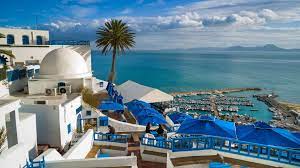Tunisia

Tunisia may be the smallest country in the Maghreb, but it has nothing to be ashamed of regarding the countless treasures found on its territory. Its pleasant Mediterranean coastline fringed by sublime sandy beaches is widely renowned to be the perfect destination for lazy-sunny holidays, yet Tunisia truly deserves to be explored deeper. From the stunning Atlas Mountains to the enchanting dunes of the Sahara desert, extreme landscapes can be experienced in only a few days, while everywhere in the country magnificent historical vestiges are taking the traveler back to the time of the ancient civilizations which were once ruling the mesmerizing Tunisia…
HEALTH INFORMATION
We make every effort to ensure that the information posted on our website is up to date and accurate according to the latest public health recommendations; however, it is impossible for us to make changes on a daily basis.
For the most current travel health recommendations, please call our clinic as make an appointment with one of our travel health professionals.
TUNISIA – RECOMMENDED VACCINES
| Hepatitis A | Recommended for all travelers. |
| Hepatitis B | Recommended for all travelers. |
| Causes, Symptoms & Treatment – Typhoid fever | Recommended for all travelers. |
| Tetanus – Diphteria – Pertussis Vaccine | Tetanus: In exceptional circumstances (eg, stay in a region where access to health care is limited), for a person aged 18 years or older, 1 dose of DT may be given if 5 years or more has elapsed since the last dose. Otherwise, one booster dose at the age of 50*. Pertussis (Whooping Cough): 1 dose is recommended for pregnant women, for every pregnancy, regardless of immunization history and the interval since the last dose (betwen week 26 and 32). *Only applicable for Quebec. |
| Measles – Rubella – Mumps | Two doses recommended for all travelers born after 1970, if not previously given. |
| Flu – Influenza | Seasonal influenza occurs worldwide. The flu season usually runs from November to April in the northern hemisphere, between April and October in the southern hemisphere and year round in the tropics. Influenza (flu) is caused by a virus spread from person to person through coughing and sneezing or by touching infected surfaces. Everyone 6 months and older should get a flu vaccine yearly. Vaccine is recommended 14 days prior to departure. |
| Routine vaccines (dCaT, Polio, Meningococcal, Shingles, Pneumococcal, Hepatitis B, HPV, MMR & Varicella) | Recommended for all travelers |
| Transmission, Symptoms and Prevention – Rabies | For travelers at high risk of animal bites or being involved in activities with bats, dogs and other mammals. Clients who plan to visit remote areas may consider receiving this vaccine. Important to note the pre-exposure rabies vaccine is administered in 2 doses with one week interval between doses. Post-exposure vaccination is always recommended, even for those previously vaccinated. |
| Turista – Traveler’s Diarrhea (ETEC) | Talk to your health care professional about the risks and precautionary measures to take, as well as the Dukoral® vaccine. Important to note that the Dukoral vaccine is an oral vaccine given in 2 doses, recommended at least 2 weeks prior to departure. |
RECOMMENDED MEDICATIONS
| Antibiotics Traveler’s Diarrhea | Azithromycin or Suprax |
MEDICAL CARE
The medical infrastructure in Tunisia is adequate for routine health care. Foreigners in need of medical assistance in the country usually go to private clinics such as the Soukra Clinic or the El Farabi Polyclinic located in Tunis, the capital city. Serious medical issues require an air evacuation to another country.
If you need an ambulance in Tunisia, call 190. But expect a long waiting time. Emergency services may be unavailable in remote areas.
Medicines are easily accessible in major cities in Tunisia, where there are numerous well stocked pharmacies. Some of them are opened 24 hours a day and 7 days a week. But it is always safer to bring your own first aid kit.
SECURITY ABROAD
There is a threat of terrorist attacks and kidnapping in the area of Mount Chambi National Park in Kasserine Governorate. Ongoing Tunisian military operations against suspected terrorists occur regularly in the area. The use of improvised explosive devices (IEDs) has been reported in the area.
CANADIAN EMBASSY
Emergency services
In case of emergency, dial:
- police: 197 / 193
- medical assistance: 190
- firefighters: 198
